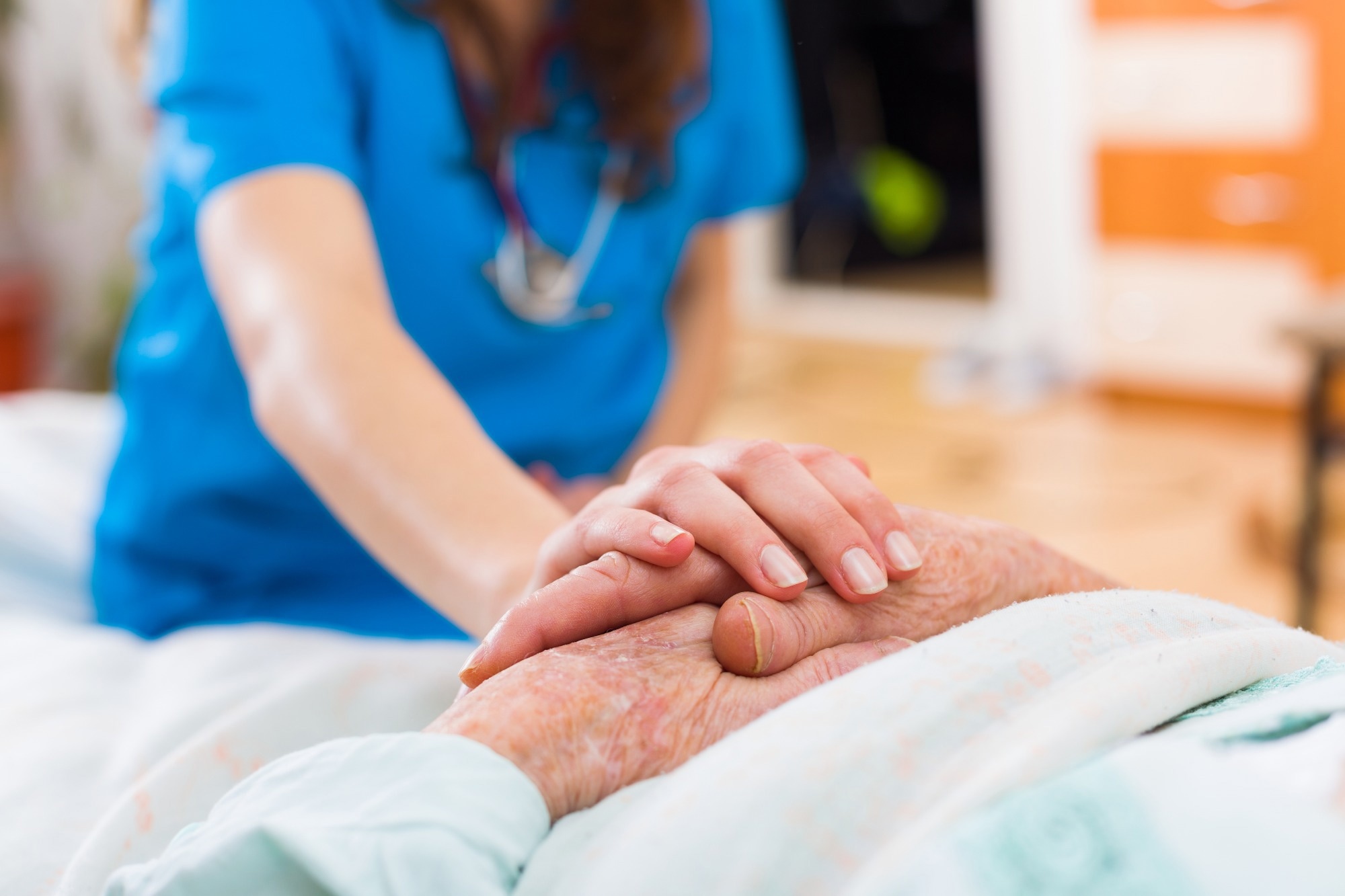Touch is a crucial sense that develops in infants and is the first way individuals connect with their physical and social environments. Touch therapies, including massages and kangaroo care, have been demonstrated to improve mental and physical health, development, and anxiety reduction. However, factors like demography, kind, length of contact, health outcomes, and the individual providing the touch impact its advantages. Previous meta-analytical research focused on specific forms of touch, study cohorts, and health outcomes but found no significant factors to modulate touch intervention efficacy. Understanding these characteristics is critical for designing treatments and enhancing population health.
 Study: A systematic review and multivariate meta-analysis of the physical and mental health benefits of touch interventions. Image Credit: Lighthunter / Shutterstock
Study: A systematic review and multivariate meta-analysis of the physical and mental health benefits of touch interventions. Image Credit: Lighthunter / Shutterstock
About the study
In the present study, researchers conducted qualitative (systematic literature review) and quantitative (meta-analysis) research to assess the impact of touch therapies on mental and physical health and find factors that influence their efficacy.
The researchers investigated whether and to the extent to which health outcomes are influenced by touching dyad dynamics (including objects, robots, or humans, as well as touch directionality and familiarity), demographics (such as age, gender, or clinical status), delivery means (i.e., touch intervention type or body part touched), and procedure (such as session frequency or duration). They also explored interactions between humans, both with and without skin-to-skin contact. They conducted separate analyses for neonates, children, and adult individuals.
The team included 137 studies in the meta-analysis and 75 additional studies in the systematic review (n = 12,966 individuals) from the PubMed, Web of Science, and Google Scholar databases between December 2, 2021, and October 1, 2022. The studies included touch treatments vs. no-touch control groups, with various health outcomes as dependent variables.
The researchers excluded reviews, dissertations, studies assessing pleasantness ratings and neurophysiological responses after touch application, records with missing data, and those published in non-English languages. Two independent authors performed data screening and assessed bias risk via small study, randomization, sequencing, performance, and attrition bias.
Results
From 85 studies, the researchers included 2,841 touch intervention recipients and 2,556 controls and found medium-sized touch effects. Among newborns, 2,134 intervention recipients and 2,086 controls, respectively, across 52 studies, observed similar effects for mental and physical outcomes. Evaluating particular outcomes revealed lower advantages for heart rate and sleeping parameters, moderate benefits for negative and positive impacts, systolic and diastolic blood pressure, mobility, and cortisol reduction, and higher improvements for depression, trait and state anxiety, pain, and fatigue.
The post-hoc study found that state anxiety, pain, trait anxiety, and depression benefited more than heart rate, respiratory, and sleep parameters did. Decreases in state anxiety and discomfort were more significant than decreases in negative affect. The benefits of pain symptoms outweighed the advantages of pleasant impacts. Touch produced more advantages for cortisol release than heart rate parameters, particularly in women. In babies, health outcomes such as liver enzymes, cortisol, temperature regulation, weight gain, and breathing had moderate to significant effects.
Touch therapies using items or robots have been shown to have comparable physical but lesser mental health benefits. Adult clinical cohorts reported more mental health advantages from skin-to-skin contact than healthy individuals. However, maternal contact was more helpful for babies. The study implies that researchers must tailor touch types to the context of each touch session. More touch sessions improved adult outcomes, with favorable relationships reported for trait anxiety, sadness, and pain. Head touch, such as face or scalp massages, provided more health advantages than arm and body contact.
Unidirectional touch had more health advantages, particularly mental health benefits. The researchers also examined animal health outcomes in 19 studies, emphasizing rodents such as rats, mice, macaques, cats, lambs, and coral reef fish. Touch treatments were largely stroking and tickling, with 71% of the results benefiting mental health-related parameters and 82% demonstrating beneficial physical health impacts.
Conclusions
Based on the study findings, touch therapies benefit physical and mental health with a modest effect size. They alleviate pain, sadness, and anxiety in adults and children while increasing weight gain in babies. Massage and other forms of touch have similar health advantages. Touch therapies can help regulate serum cortisol, increase body weight in neonates, and reduce pain, depression, and anxiety in adults. However, it is crucial to consider study bias and blind experimental settings. The frequency of therapies is also important, with more sessions improving trait outcomes and pain reductions in adults. The study indicated negative correlations between cortisol and blood pressure in adults, owing to the habituating effects of touch on the sympathetic nervous system and hypothalamic-pituitary-adrenal axis.
Journal reference:
- Packheiser, J., Hartmann, H., Fredriksen, K., et al. A systematic review and multivariate meta-analysis of the physical and mental health benefits of touch interventions. Nat Hum Behav (2024), DOI: 10.1038/s41562-024-01841-8, https://www.nature.com/articles/s41562-024-01841-8